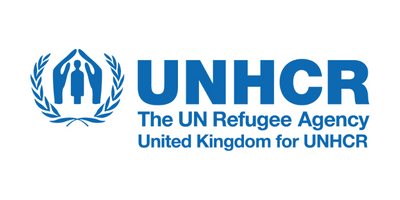This is a summary of what was said by UNHCR spokesperson Matthew Saltmarsh – to whom quoted text may be attributed – at today’s press briefing at the Palais des Nations in Geneva.
24 September 2024
UNHCR, the UN Refugee Agency, is gravely concerned about the serious escalation in the attacks yesterday, which to date, according to the Lebanese Ministry of Public Health, have left 492 people dead, including 35 children and 58 women, and injured more than 1,645 people.
The humanitarian consequences are devastating. Tens of thousands of people have now been forced from their homes, fleeing yesterday and through the night, and the number continues to grow. This is in a region that has already been devastated by war and a country that knows suffering all too well.
Since the beginning of the Gaza situation (prior to the latest escalation), ongoing clashes along the Blue Line across Lebanon’s southern border have displaced more than 102,000 people.
The toll on civilians is unacceptable. The protection of civilians and civilian infrastructure in Lebanon must be paramount. International humanitarian law must be upheld. An end to the hostilities is urgently needed. Now is the time for the international community to further avert suffering and devastation. It also must step up support for Lebanon and its people who need our commitment today more than ever. Further escalation and expansion of this conflict across the region would be absolutely devastating.
UNHCR’s role during the Lebanon crisis
Prior to these latest events, UNHCR had already been responding humanitarian needs of Lebanese and refugees who have been displaced mainly from the South. As of July, UNHCR had provided more than 116,000 emergency relief items, assisted some 57,200 people with cash assistance, and supported collective shelters, as well access to safe shelter, healthcare, and psychosocial support.
UNHCR teams are supporting the response to the latest displacements from the South as well as in the southern suburbs of Beirut, Saida and Bekaa. They are providing urgent assistance and protection to those affected – including Lebanese citizens and refugees. This includes working to provide access to safe shelter, healthcare, and psychosocial support, and continuing to advocate for their protection in these challenging circumstances.
UNHCR continues to coordinate with the South and Nabatiyeh Disaster Risk Management (DRM) / Disaster Risk Reduction (DRR) to address and respond to emergency needs. An initial list of collective shelters across Lebanon, namely schools, to accommodate displaced people has been shared by the government. UNHCR and partners have already initiated assessments of those locations to provide adequate support, including to purpose them to be able to shelter those displaced in safety and dignity, as well as providing them with core relief items. Cash support is also being coordinated. UNHCR is also ready to further support the Health Ministry, disbursing its prepositioned medical equipment and to procure trauma kits.
Lebanon Refugees
Lebanon remains the country hosting the largest number of refugees per capita with the Government’s estimation of 1.5 million Syrian refugees and 11,411 refugees of other nationalities. Before the latest strikes this week, some 87,000 refugees resided in the southern governorates.
Displacement of refugees from the south and the Bekaa area of the country to other areas has been reported, alongside pendular movements. Other refugees remain in or have returned to unsafe affected areas.
Refugees who have fled their homeland in search of safety and security are now facing the reality of being displaced once again and forced to relive the trauma of displacement, as the very places where they sought refuge become engulfed in conflict. This is only exacerbating pre-existing vulnerabilities. Nine out of ten Syrian refugees are in need of humanitarian assistance to cover basic needs, as a result of the combined impacts of the socio-economic downturn coupled with the COVID-19 pandemic, the Beirut blast and lately the Gaza situation.
The influx of displaced individuals from the south since October 2023 has also led to soaring rents in safer regions such as Beirut and Mount Lebanon, worsening the already dire circumstances for Syrian refugees who were already facing severe hardship.
Since October 2023, 33 Syrian nationals are reported to have been killed and 113 injured by aerial strikes within the southern governorates. UNHCR is closely following up with the families of the victims, who have been referred to case management services for necessary support, including emergency cash assistance. UNHCR will also continue to cover medical and hospitalization costs for Syrian refugees impacted by hostilities.
UNHCR stands ready to further support the people of Lebanon, the government-led humanitarian response, and the many refugees that the Lebanese have so generously hosted for years.
ENDS




